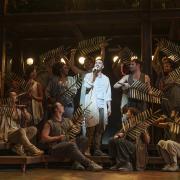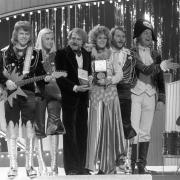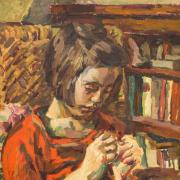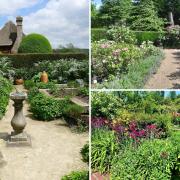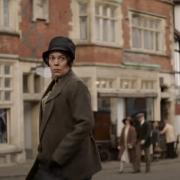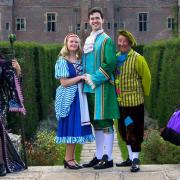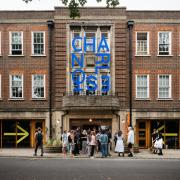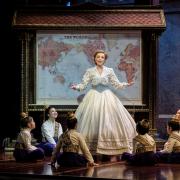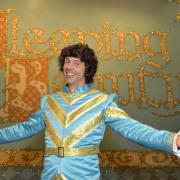See the poem below
“That’s She!”
Young hands reached out
to the donkeys,
much loved, but sadly no
longer there.
Old hands get flour from
the Watermill,
through the almost wild
garden.
Not a jungle though, no
Mowgli.
Though still not made
“By singing:- ‘Oh, how
beautiful!’ and sitting in
the shade”.
The Citation too, edged
with flowers.
The prize money added
yews and roses,
bought the children
laughter –
a boating pond, a paddle
boat.
And the house ...
‘That’s She! The Only
She! Make an honest
woman of her – Quick!’
Perfect - our dream too!
But Carrie got there first.
If.
--------------------------------------------------
Bateman’s - Burwash, East Sussex - Explanation of embedded clues
Bateman’s was Rudyard Kipling’s 17th Century Wealden ironmaster’s house, built in 1634 and purchased by him in 1902, a family home for his wife and children. Rudyard Kipling lived there until his death in January 1936.
A pair of donkeys used to live in the field on the hill alongside Bateman’s. They were very friendly and came to be stroked, a high point for visiting children. In the grounds is a working Watermill where stone-ground flour can be purchased. It is reached by walking through a partly naturalised garden with wild flowers. The jungle is a reference to “The Jungle Book” whose central character was the young boy Mowgli. The quote ...‘Oh, how beautiful!’... is from his poem ‘The Glory of the Garden’, much reproduced on garden ornaments! The Citation refers to his 1907 Nobel Prize for Literature Diploma Citation, on view in the house. Each Nobel Prize Diploma incorporates a uniquely commissioned illustration – Kipling’s is a particularly beautiful flower picture. As well as the Diploma, each Winner receives a Gold Medal and a sum of money. Kipling received £7,700, a significant amount in 1907, but far less in real terms than recent prize-winners. He and his wife decided to spend it on the garden. They planted the Yew hedges and rose garden and had constructed a shallow boating pond complete with especially built paddle boat for their children and their friends.
When Kipling and his wife, Carrie, first saw Bateman’s they fell in love with it instantly, hence Carrie’s exclamation – ‘That’s She! ...’ . The final word, If, refers not just to most visitors’ dream of themselves living in such a house, but to Kipling’s perhaps most famous poem ‘If’ (“If you can keep your head when all about you ... you’ll be a Man, my son!”). This was written at Bateman’s in 1910 and published in Rewards and Fairies. This poem was the clear winner, by twice as many votes as the runner-up, in a poll conducted by the BBC in 1995 to discover the nation’s favourite poem.
***
Acknowledgement of sources:
National Trust Handbook and Website.
‘If’ and ‘The Glory of the Garden’ : The Nation’s Favourite Poems, BBC, 1976.
www.Kipling.org.uk
Relevant websites found by searches for ‘Rudyard Kipling’, ‘Bateman’s’ and ‘Nobel Prize for Literature’.



